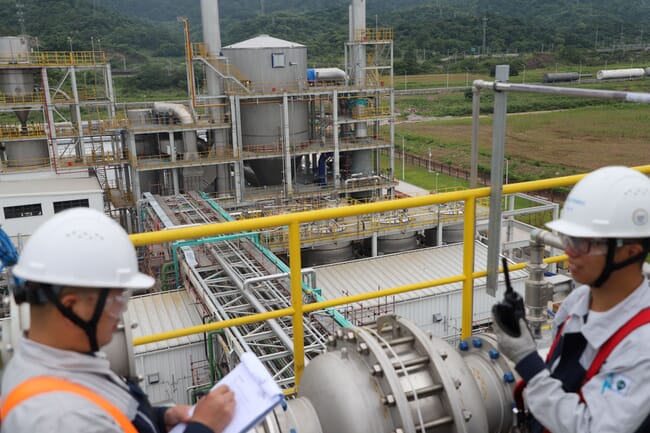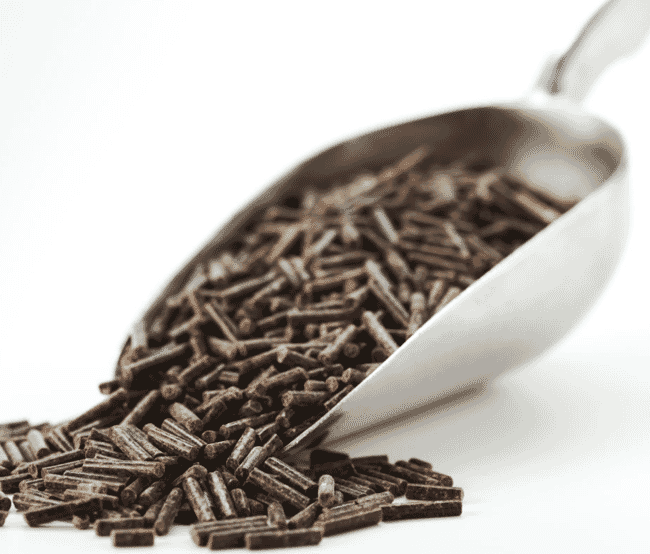
Calysseo intends to build an alternative protein facility in Al Jubail in the Kingdom of Saudi Arabia
Calysseo, a joint venture between alternative protein company Calysta and global animal nutrition leader Adisseo, has announced it intends to build an alternative protein facility in Al Jubail in the Kingdom of Saudi Arabia in partnership with Food Caravan.
Advanced discussions and detailed planning are underway between the partners, who have formalised their intent to move forward with a development in the country. The partnership is aiming to build a 100,000 tonne-capacity fermenter in the Kingdom of Saudi Arabia to produce Calysta’s novel protein ingredients, which require no animal or plant ingredients to produce. It is hoped the facility could become operational by the end of 2026, pending necessary construction and approvals.
Confirmation over the intent to build comes after Calysseo announced it has successfully switched on its maiden 20,000 tonne fermenter in China, which will produce FeedKind Aqua protein for the aquaculture market. The KSA facility would be five times the size of the current Chinese fermenter.
Alan Shaw, CEO, president, and co-founder of Calysta said, “our mission is to help the world meet one of its most pressing goals – feeding a global population that’s set to hit 10 billion by 2050. To do that, we need more sustainable protein, and to produce protein in places we are not currently able to. That’s what’s so exciting about the possibility of a Calysseo facility in KSA.
“This would be our second industrial-scale plant and an important step on delivering enough sustainable protein to meet growing and pressing global demand.
“Our patented fermentation technology is proven to produce a high-quality protein ingredient and thanks to the efficiencies of using a naturally occurring bacteria process, we are ready to rapidly scale up and meet that demand.”
Calysta’s protein ingredients are produced by harnessing the power of a naturally occurring process that uses no animal or plant matter, requiring almost no water and no arable land, helping preserve biodiversity. The result is a non-GMO protein that is high quality and nutritious, with a wide range of amino acids and vitamins.
Jean-Marc Dublanc, CEO of Adisseo, part of the Sinochem Group, said, “today’s announcement is another significant milestone as we quickly move towards more sustainable forms of producing protein. Calysseo is something we’re incredibly proud of, we’re committed to building on this valuable partnership with Calysta as we focus on bringing the next phase of development forward.
“Together with Calysta, we share an ongoing commitment to improving the security and sustainability of the feed ingredient market, our facilities fulfil a considerable part of that promise.”

FeedKind Aqua has been shown to be effective as a functional and nutritious feed ingredient
A gas allocation from the Kingdom’s Ministry of Energy has been received and a site has been nominated by the Royal Commission for Jubail and Yanbu. The project is being supported by the Ministry of Investment of Saudi Arabia and the National Industrial Development Centre.
Calysta’s protein ingredients have been validated in several independent trials both with academics and professionals. Its FeedKind Aqua ingredient for use in aquaculture has been shown to be effective as a functional, nutritious feed ingredient in extensive trials across several popular aquaculture species, including seabass, bream, largemouth bass and salmon.
Thailand’s Kasetsart University, Thailand, recently found distinct benefits for shrimp, saying FeedKind promotes strong, healthy growth, while also helping activate shrimp’s immune response to Vibrio, the causative agent of early mortality syndrome (EMS). Since it was discovered in 2009, EMS has wreaked havoc on the Asian aquaculture market, causing billions of dollars in losses.
Dennis Leong, co-managing director of Calysseo, said: “The Kingdom as a protein producer is a paradigm shift for the world. We’re excited to progress plans to move forward with our second Calysseo facility, so soon after announcing start up activities at our Chongqing factory in China. Another milestone is exciting, expanding a new era of food and feed security.”




